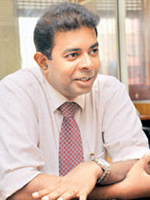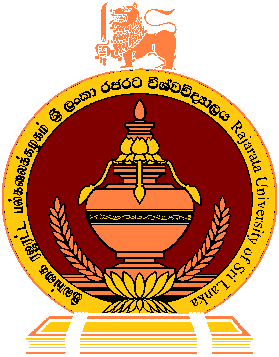Complementary & Alternative Medicine
“Complementary and alternative medicine is a broad domain of healing resources that encompasses all health systems, modalities, and practices and their accompanying theories and beliefs, other than those intrinsic to the politically dominant health system of a particular society or culture in a given historical period. CAM includes all such practices and ideas self-defined by their users as preventing or treating illness or promoting health or well-being. Boundaries within CAM and between the CAM domain and that of the dominant system are not always sharp or fixed.” CAM Research Methodology Conference, April 1995.
Complementary and alternative medicine is gaining more and more attention worldwide as a mean of finding solutions for miseries of ill health where contemporary medicine has failed. Meantime concerns are also raised by many parties on the safety and efficacy of such treatments and practices creating a gap between the beliefs and available evidence in relation to Complementary and alternative medicine.
Sri Lanka has a unique history in relation to Complementary and alternative medicine practices. Indigenous medicine in Sri Lanka, Ayurveda, Siddha, Unani, and other systems are widely practiced in Sri Lanka. Despite the availability and wide wide practice over time the contemporary medical stream has kept away from CAMs hindering the opportunities for useful research and interventions.
The need for a collaborative center for research and development in CAM was felt as a dire need of the time and FMAS of RUSL pioneered into this area of vacuum by establishing this center.
1. This center will enlighten the future of CAM aiming the following objectives.
2. To promote the study and research in fields of complimentary, Alternative and Traditional Medicine.
3. To gather information about different systems of Health care provision available in Sri Lanka.
4. To promote research in this area of health care with the intention of developing evidence based practices and evidence based medicine In relation to CAM.
5. To organize workshops and study programs in CAM .
6. To act as a centre offering elective appointments for foreign and local students.
7. To liaise with other institutes in the field of CAM for scientific research.
8. To publish a scientific journal in Complementary and Alternative medicine.
9. To act as a centre providing certificate courses and higher levels of education programs to Allopathic doctors and professionals of different disciplines.
10. To develop a state of the art laboratory for research and developments in CAM.
11. To Attract local and International grants for research and developments in the field of CAM.
12. To work on getting patent rights for new inventions in CAM carried out by the
13. To act as a centre with multidisciplinary specialization. This will enable the unit to be eligible to look into the validity of different claims made by different people and institutions involved in CAM. Hence in the future will be able to act as a National level Advisory unit to the state institutions in resolving the scientific nature of such claims.
14. To Promote and implicate the concept of Integrated medicine in a scientific manner, becoming the pioneering unit in Sri Lanka to introduce this concept.
This center is established in the professorial building of the Teaching Hospital Anuradhapura, attatched to the department of medicine and the the director, A research assistant and a computer application assistant are working in the center as the staff members.
CAM in Sri Lanka
CAM had been in wide practice, since ancient past in Sri Lanka.
There is clear evidence that this history runs back to more than 2600 years from the present. It is believed that even before that, Sri Lanka has excelled in medical lore where King Ravana had been an expert in Alchemi and medicine.
It is our pride to mention that Sri Lanka has its own indigenous Scheme of traditional medicine. We have our own methods of treatment systems based on a series of prescriptions handed down from generation to generation.
Pioneers of health care system like King Buddhadasa gave an immense support inorder to sustain the longevity and survival of the health care system of ancient Sri Lanka.
King Buddhadasa has written a comprehensive manuscript called “SararthaSangrahaya” which the practitioners in the present also use for their reference.
In the context of multiple cultural backgrounds Sri Lankans were blessed with treatment modalities of other cultures and tribes like Siddha, Unani, Accupuncture, other than the traditional medicine of natives which included Ayurveda and deshiyachickitsa.
All these treatment modalities helped man to overcome their ailments over the generations.
At present CAM is practiced islandwide freely and people can decide their treatment modality by their will.
Because of the multiple cultural systems in the society we believe that there is a special role in peoples’ health by the CAM. Therefore a good CAM service will definitely improve the quality of health care system in Sri Lanka.
Projects/Collaborations
A 3 year collaborative programme on ‘CAM based primary health care’ was implemented on 30th January 2013, in association with the Ayurveda community health promotion pragramme – Anuradhapura of the Ministry of Indegenous medicine.
Strategies of the programme
1) Capacity building
a) Improving methodological skills of designing community based studies among ayurvedic practitioners. ( certificate/ post graduate diploma course)
b) Basic training on Ayurvedic health promotion for HPOs. (Certificate course/ Diploma course)
2) Field programmes
a) GIS mapping of CAM service providers
b) Health behavior survey
c) Cross sectional study to estimate disease burden
d) Interventional studies
e) Establishment of community clinics
f) Creation of new models for community health promotion
Courses
Our center has taken a huge step in the future of CAM practice by organizing courseas for professionals and other interested groups.
The course for the 1st group started in the September 2013 and it is scheduled to run over a period of 6 months. Lectures are done by resource personnels from contemporary medical stream as well as CAM field.
Nearly 200 candidates applied for the course and only 62 students have been selected for the current course after a very competitive selection test.
It is encouraging to see the interest of people to get knowledge about CAM through these courses. Students from other professional fields like professionals in the Depatment of education, university students are following the current course.
Electives
Our center provide opportunities for the elective students to study and conduct research on CAM available in Sri Lanka
About elective students and projects completed
Director

Dr. Senaka Pilapitiya
MBBS MD PGCME
Consultant Physician


